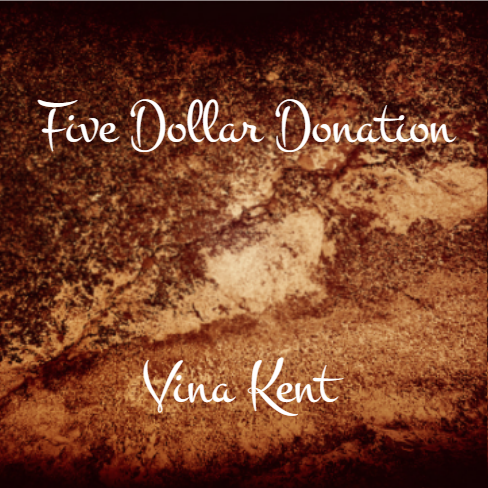The bus ride over to the museum was as painful as a tooth extraction without the laughing gas. Kids who were nearing adulthood, acted like two-year-olds on Red Bull, bouncing in their seats, yelling at one another, popping gum, running down the aisle playing musical seats, ignoring the shouts from the teachers. We were on the last outing of our senior year, not that anyone cared. Most people complained about going because who, except me, wanted to spend half a day cooped up in a place with mummies and fossils?
After thirty minutes of walking from exhibit to exhibit, we came to the one I had been eager to see. It was a special memorial, set up by a non-profit organization run by firefighters, one I was familiar with. The exhibit had a story displayed about a young man, the organization's founder, in a wheelchair, injured in the line of duty. The showcase was of one of the most honoured tragedies and displays of patriotism in the last couple of decades.
Metal so mangled, burnished and gnawed sat before me encased in glass; a story from another time that was not my own. Staring at the veins of this once strong support stirred thoughts of sympathy, but it was his story that squeezed my heart.
A tall, lean firefighter with tawny hair and sky blue eyes, shared his story with the crowd, recalling from memory as if it were the moment of the event, how that day went for him and the impact it had on his life.
“I had come over from upstate New York after I heard the news that morning, arriving just after six the same evening. Smoke could be seen from a couple of blocks away,” his eyes seemed lost in another time, as though he could still see the smoke. “You could smell and taste the smoke, heavy clouds of death they were, the moment you were within a block's radius of the towers; it made your stomach clench, gagging you until you put a mask on.” He took his hat off and scratched his head, more a habit than from an actual itch. Coming from a family who had firefighters that went back a century, I noticed the man’s tick for what it was.
“I bet the streets were filthy, I mean can you imagine!” A six foot something, a beefy kid with shaggy brown hair stated more as a rhetorical question. The kid's statement was like a kidney punch that left you doubled over spitting up blood; I felt the urge to smack him but restrained myself. Who could think of such a thing, when an event that devastating had occurred, an event that people had experienced.
“I doubt garbage and filth, as you put it, were the last thing on people’s minds.” A girl with long golden locks and oversized black-rimmed glasses said.
Exactly! I quietly agreed.
Fixing his hands on his hips, the firefighter answered, “We will actually get to that, but what’s important to understand is that at the time, it was chaos searching through the rubble that wasn’t scorching hot yet.”
I’d heard similar stories from my father, who would come home looking mentally drained from the experiences he’d been through, but he never shared any stories about that tragic day. He’d been scarred physically and mentally by that single event, so I always knew better than to ask.
The kid who was probably more brawn than brains gave Goldilocks a sideways smirk, but she paid him no mind, keeping her focus on the fireman as he continued with his story.
“It was no easy feat of will and strength to assist in looking for people through debris, the heat alone was enough to make anyone easily want to faint. Many did. Volunteers rushed to our aid bringing water and other supplies,” a pained expression came over him. I’d witnessed my father wearing one similar. “Many a responder was caked in ashy mud, blood, and who knows what else. The uniforms of those who were the closest to ground zero were stained and charred. And some first responders had to be carried away from exhaustion, burns and dehydration.”
As he progressed with his story, we walked the rest of the exhibit. My mind wandered to those people he spoke of. When we, at last, came to a plaque with the names of all the people who had been affected by or lost to that historical tragedy, I felt as if I were just a speck in this world, whose life held nothing more than an iota of existing. For those who did survive, they eventually lost their lives to an injury or resulting disease related to that day’s events, just like my father. Reaching an unsteady hand, I traced his name, feeling the stinging warm liquid snaking its way down my cheeks. It had been a year since my mother and I lost him to a complication in his lungs; it still felt fresh.
Reaching into my pocket, I felt the crisp five-dollar bill I’d gotten this morning from my mother. It was all I had, but if it went towards something meaningful, then it was worth it. I placed my money into the donation box and smiled, noting to myself, that while we were merely hearing a story that was simply a history lesson now; to those that lived through that event, it meant something more, the day that everything changed, just like it was for me and my family.
After thirty minutes of walking from exhibit to exhibit, we came to the one I had been eager to see. It was a special memorial, set up by a non-profit organization run by firefighters, one I was familiar with. The exhibit had a story displayed about a young man, the organization's founder, in a wheelchair, injured in the line of duty. The showcase was of one of the most honoured tragedies and displays of patriotism in the last couple of decades.
Metal so mangled, burnished and gnawed sat before me encased in glass; a story from another time that was not my own. Staring at the veins of this once strong support stirred thoughts of sympathy, but it was his story that squeezed my heart.
A tall, lean firefighter with tawny hair and sky blue eyes, shared his story with the crowd, recalling from memory as if it were the moment of the event, how that day went for him and the impact it had on his life.
“I had come over from upstate New York after I heard the news that morning, arriving just after six the same evening. Smoke could be seen from a couple of blocks away,” his eyes seemed lost in another time, as though he could still see the smoke. “You could smell and taste the smoke, heavy clouds of death they were, the moment you were within a block's radius of the towers; it made your stomach clench, gagging you until you put a mask on.” He took his hat off and scratched his head, more a habit than from an actual itch. Coming from a family who had firefighters that went back a century, I noticed the man’s tick for what it was.
“I bet the streets were filthy, I mean can you imagine!” A six foot something, a beefy kid with shaggy brown hair stated more as a rhetorical question. The kid's statement was like a kidney punch that left you doubled over spitting up blood; I felt the urge to smack him but restrained myself. Who could think of such a thing, when an event that devastating had occurred, an event that people had experienced.
“I doubt garbage and filth, as you put it, were the last thing on people’s minds.” A girl with long golden locks and oversized black-rimmed glasses said.
Exactly! I quietly agreed.
Fixing his hands on his hips, the firefighter answered, “We will actually get to that, but what’s important to understand is that at the time, it was chaos searching through the rubble that wasn’t scorching hot yet.”
I’d heard similar stories from my father, who would come home looking mentally drained from the experiences he’d been through, but he never shared any stories about that tragic day. He’d been scarred physically and mentally by that single event, so I always knew better than to ask.
The kid who was probably more brawn than brains gave Goldilocks a sideways smirk, but she paid him no mind, keeping her focus on the fireman as he continued with his story.
“It was no easy feat of will and strength to assist in looking for people through debris, the heat alone was enough to make anyone easily want to faint. Many did. Volunteers rushed to our aid bringing water and other supplies,” a pained expression came over him. I’d witnessed my father wearing one similar. “Many a responder was caked in ashy mud, blood, and who knows what else. The uniforms of those who were the closest to ground zero were stained and charred. And some first responders had to be carried away from exhaustion, burns and dehydration.”
As he progressed with his story, we walked the rest of the exhibit. My mind wandered to those people he spoke of. When we, at last, came to a plaque with the names of all the people who had been affected by or lost to that historical tragedy, I felt as if I were just a speck in this world, whose life held nothing more than an iota of existing. For those who did survive, they eventually lost their lives to an injury or resulting disease related to that day’s events, just like my father. Reaching an unsteady hand, I traced his name, feeling the stinging warm liquid snaking its way down my cheeks. It had been a year since my mother and I lost him to a complication in his lungs; it still felt fresh.
Reaching into my pocket, I felt the crisp five-dollar bill I’d gotten this morning from my mother. It was all I had, but if it went towards something meaningful, then it was worth it. I placed my money into the donation box and smiled, noting to myself, that while we were merely hearing a story that was simply a history lesson now; to those that lived through that event, it meant something more, the day that everything changed, just like it was for me and my family.






